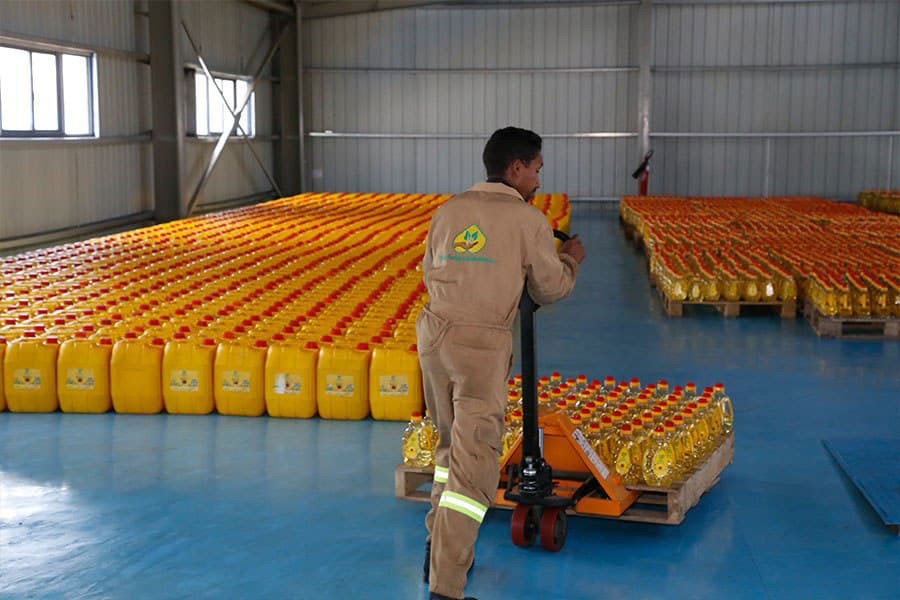
Commentaries | Aug 20,2022
Importers of animal feed components are no longer required to pay customs duties or value added tax (VAT), following a decision by federal authorities last week.
Eyob Tekalign (PhD), a state minister for Finance, told officials of the Ministry of Agriculture and the Customs Commission that the exemption is meant to relieve the livestock sector, which has been under pressure from runaway inflation. Retail prices of dairy products have gone up, owing to the rising cost of feeds. A quintal of cattle feed has nearly tripled to around 3,000 Br over the past year.
Animal feed is classified into conventional and unconventional varieties. Animals consume conventional feed, while the unconventional feed is prepared from wheat, maize, and soybeans – primarily used for human consumption. Agro-industrial by-products such as grain and grain screening are the main sources of feed. Oil-processing plants, breweries, and sugar factories produce these by-products, and wheat bran from flour mills is used mainly as animal feed in Ethiopia.
Officials at the Agriculture Ministry proposed a tax break to the Finance Ministry eight months ago. They had researched five-year data to determine the effects of reducing import duties to zero. The study claims the exemption would help lower the cost of animal feed by a third and the prices of dairy products by an average of 17pc. It found some feed components sold for nearly three times their regular prices.
The involvement of intermediaries and compounded VAT imposed on 16 feed components is as high as 60pc. Imported components are also subject to duties and withholding taxes.
The heavy taxation has been a burden for pastoralists, translated into rising costs for dairy and meat products.
The livestock sector contributes 16pc to the gross domestic product (GDP). There are an estimated 59 million heads of cattle; sheep and goat populations stand at 7.5 million and 13.2 million, respectively. The latest survey from the Ethiopian Statistics Service put the country's chicken population at around 59.5 million.
Industry players have long complained about the inadequate feed supply and rising prices, which they say are among the main bottlenecks facing the livestock sector. In recent years, drought-induced feed shortages in pastoral areas have exacerbated the cost of animal feed.
Established in 2007 with 26 members, the Ethiopian Animal Feed Industry Association has been lobbying for the tax reduction.
The shortages and escalating prices of feed have adverse effects on the productivity and profitability of companies in the commercialisation of livestock products, according to Gemechu Nemie, general manager of the Association.
The cost of feed accounts for 70pc of the cost of livestock trade.
"Competition for what little feed is available worsens," says Gemechu.
He believes the tax waiver will help revamp the import of premix, which has been declining in recent years. Ethiopia imported 23 million dollars worth of premix in 2019, used to manufacture animal feed annually. Three years ago, over 15 manufacturers were importing ingredients for animal feed. Belgium, China and India were major sources, accounting for 87pc of the value imported. There are only two companies still importing premises.
The tax exemption is good news for the managers of Alema Koudjis Poultry Farm, which has been in business for the past 15 years. It spends 20 million Br a month to buy chicken feed, importing a fifth of its feed mainly from the Netherlands and France.
Dendin Debabu, general manager of the poultry farm, has observed mixed feed prices shoot up rapidly in recent years, largely due to the increase in prices for inputs.
Several poultry farms have been pushed out of business. Five years ago, 25 large-scale poultry farms were registered with the Ministry of Trade & Regional Integration. Less than 10 are in business this year, and many are unable to use more than 40pc of capacity. Industry players say they still have to contend with a forex shortage to import feed components.
“Without access to forex, the lifting the tax off will have little impact on stabilising feed prices,” said Gemechu.
Tibebu Manaye (PhD) is a lecturer at the School of Animal & Range Sciences at Haromaya University. He challenged the industry's sentiment echoed by Gemechu.
“The imported ingredients account for less than a tenth of the feed required," he said.
Last year, the federal government granted tax exemptions to imported animal feed processing machinery to enhance productivity.
PUBLISHED ON
Jun 04,2022 [ VOL
23 , NO
1153]

Commentaries | Aug 20,2022

Editorial | Apr 25,2020

Fortune News | Mar 05,2022

Editorial | Nov 04,2023

Commentaries | Sep 10,2021

Viewpoints | Apr 04,2020

Fortune News | Aug 13,2022

Radar | Apr 13,2019

Viewpoints | Sep 19,2020

Fortune News | Oct 04,2021

Dec 22 , 2024 . By TIZITA SHEWAFERAW
Charged with transforming colossal state-owned enterprises into modern and competitiv...

Aug 18 , 2024 . By AKSAH ITALO
Although predictable Yonas Zerihun's job in the ride-hailing service is not immune to...

Jul 28 , 2024 . By TIZITA SHEWAFERAW
Unhabitual, perhaps too many, Samuel Gebreyohannes, 38, used to occasionally enjoy a couple of beers at breakfast. However, he recently swit...

Jul 13 , 2024 . By AKSAH ITALO
Investors who rely on tractors, trucks, and field vehicles for commuting, transporting commodities, and f...

Oct 11 , 2025
Ladislas Farago, a roving Associated Press (AP) correspondent, arrived in Ethiopia in...

Oct 4 , 2025
Eyob Tekalegn (PhD) had been in the Governor's chair for only weeks when, on Septembe...

Sep 27 , 2025
Four years into an experiment with “shock therapy” in education, the national moo...

Sep 20 , 2025
Getachew Reda's return to the national stage was always going to stir attention. Once...